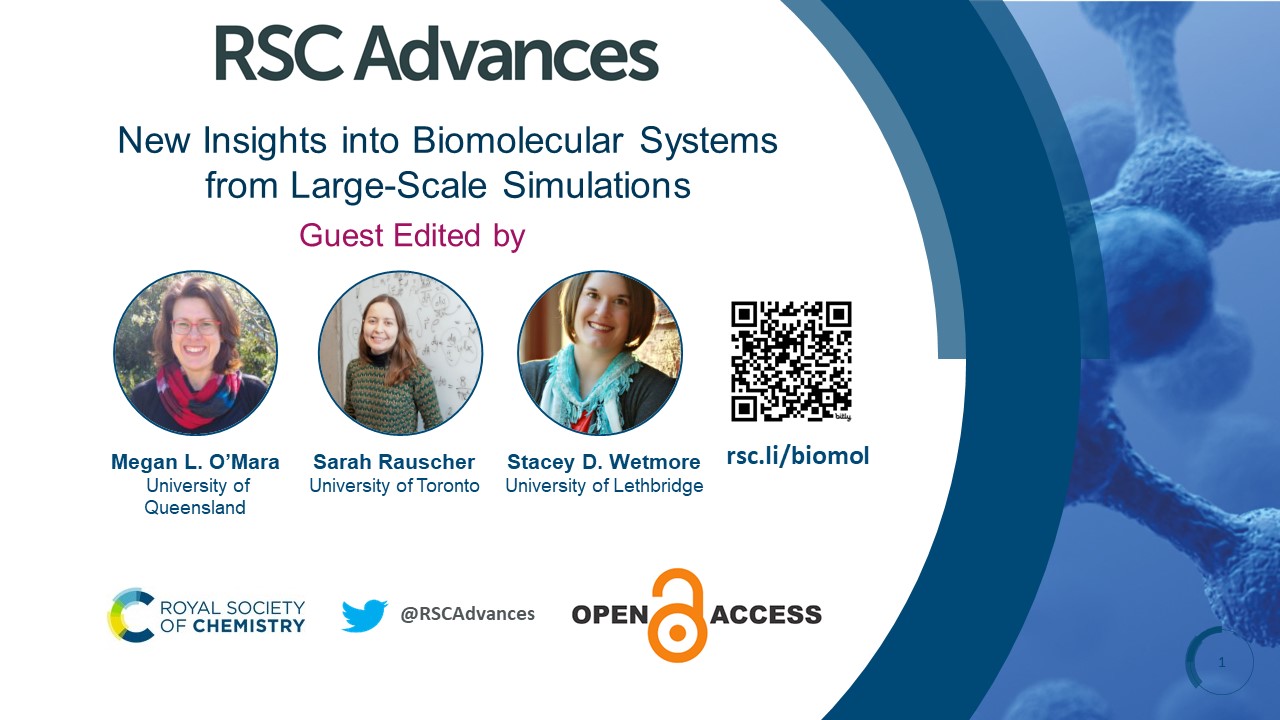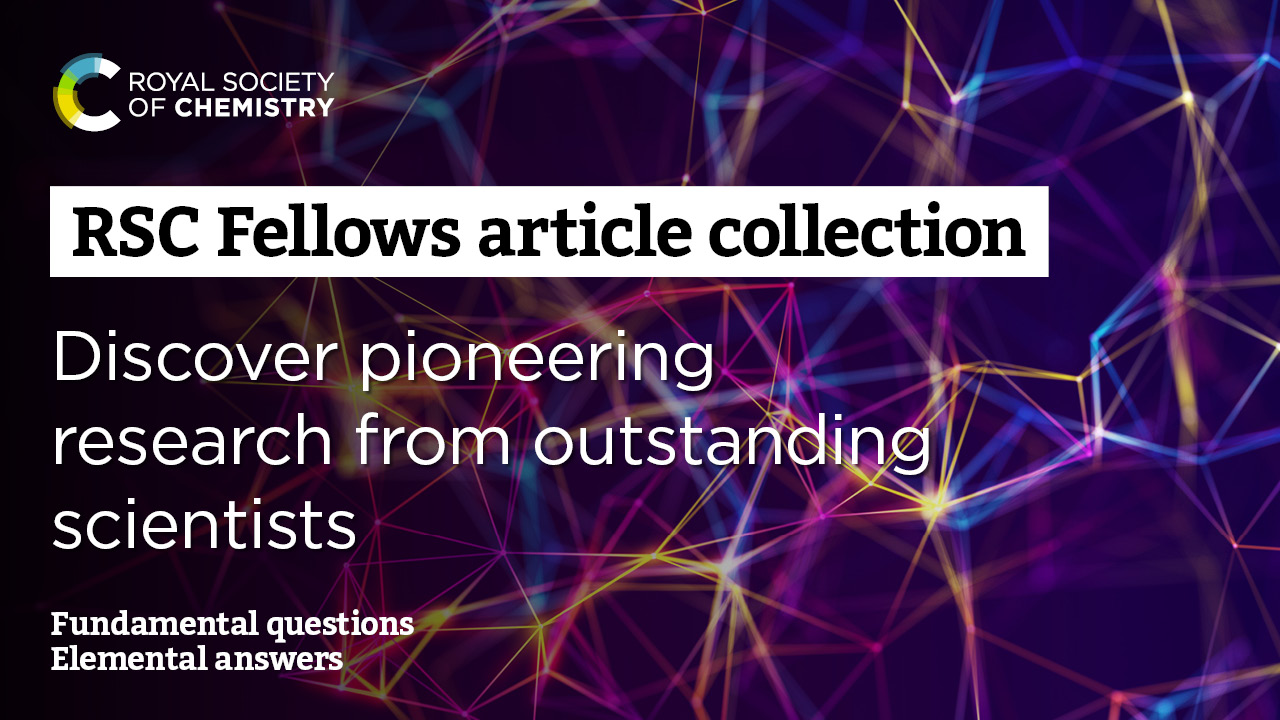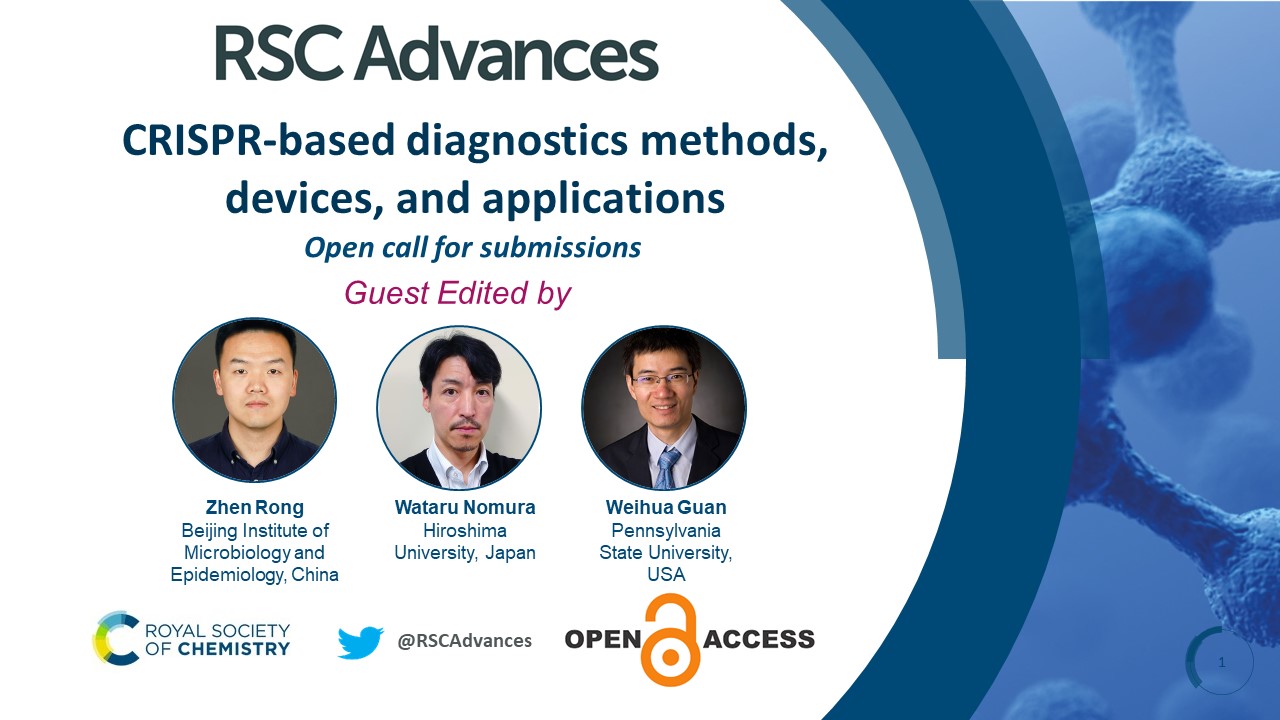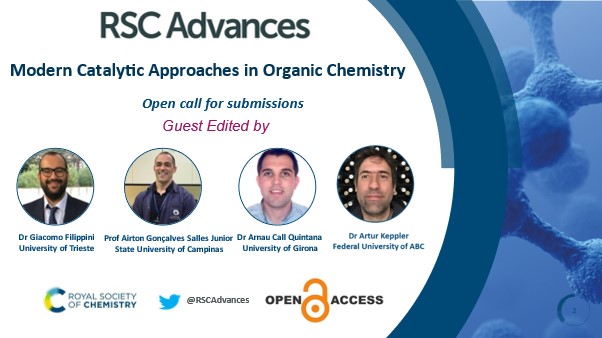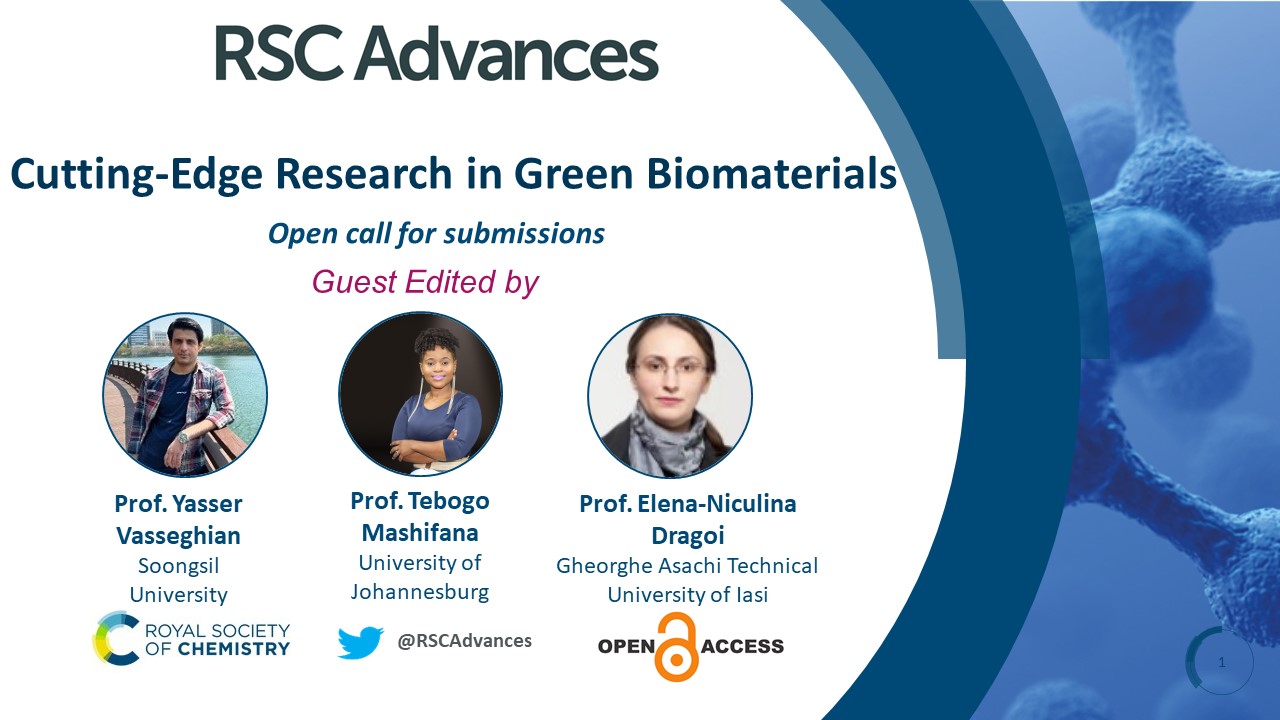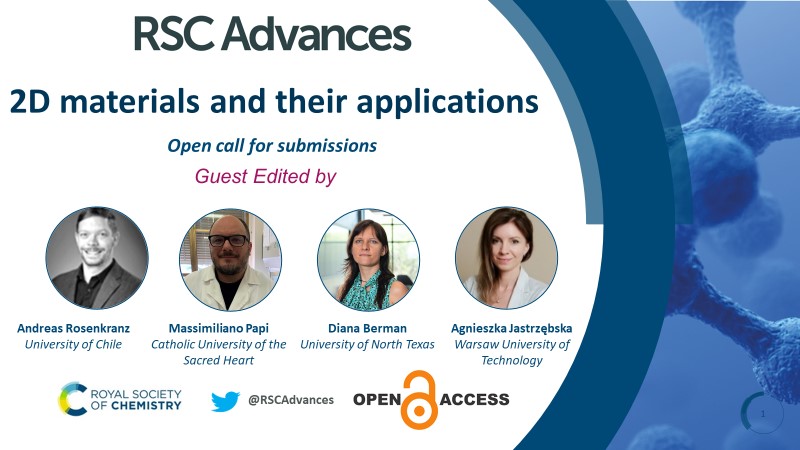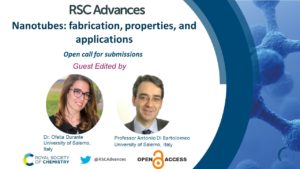RSC Advances is delighted to present this themed collection titled ‘New Insights into Biomolecular Systems from Large-Scale Simulations’.
This themed collection in RSC Advances highlights recent applications of computer simulations to understand the structural and functional dynamics of biomolecular systems, with the goal to extract insights from large datasets and permit direct comparisons to experimental data. An emphasis is placed on the application of large-scale models to address unexplored areas in protein folding, intrinsically disordered proteins, protein aggregation, nucleic acid structure and function, membrane proteins, signaling molecules crossing membranes, and ligand interactions, among other topics.
This collection was Guest Edited by RSC Advances Editorial Board member Professor Stacey Wetmore (University of Lethbridge, Canada), RSC Advances Associate Editor Professor Megan O’Mara (Australian National University) and Dr Sarah Rauscher (University of Toronto). They provide an overview of the collection in this accompanying Editorial.
A selection of articles have been highlighted below, and you can view the full collection here.
Partial peptide dissociation and binding groove plasticity in two major histocompatibility complex class I alleles – differences between alleles versus force field and sampling effects
Sebastian Wingbermühle and Lars V. Schäfer
RSC Adv., 2022, 12, 29908-29914
Polar/apolar interfaces modulate the conformational behavior of cyclic peptides with impact on their passive membrane permeability
Stephanie M. Linker, Christian Schellhaas, Benjamin Ries, Hans-Jörg Roth, Marianne Fouché, Stephane Rodde and Sereina Riniker
RSC Adv., 2022, 12, 5782-5796
How a single mutation alters the protein structure: a simulation investigation on protein tyrosine phosphatase SHP2
Yingnan Hou, Xiaoli Lu, Ziyao Xu, Jiarun Qu and Jing Huang
RSC Adv., 2023, 13, 4263-4274
Simulation of defects, flexibility and rupture in biopolymer networks
Matthew H. J. Bailey and Mark Wilson
RSC Adv., 2022, 12, 2171-2180
View the full collection here
We welcome you to contribute to this collection. Please contact the Editorial Office to highlight your interest in submitting to this collection.

Submit to RSC Advances today! Check out our author guidelines for information on our article types or find out more about the advantages of publishing in a Royal Society of Chemistry journal.
Keep up to date with our latest Popular Advances, Reviews, Collections & more by following us on X. You can also keep informed by signing up to our E-Alerts.


